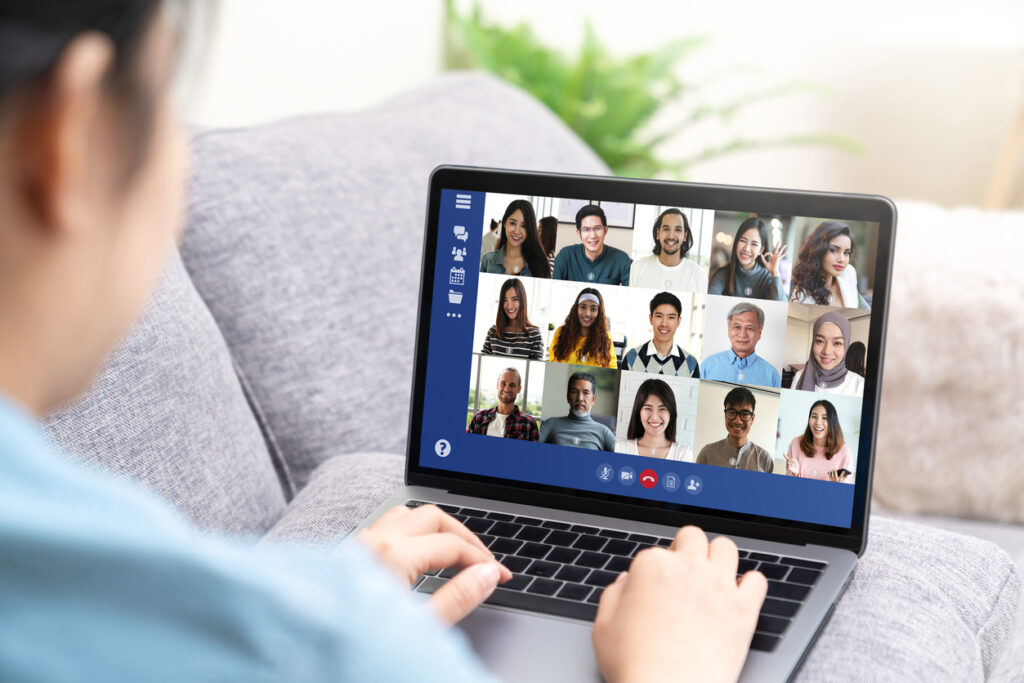Over the last few months, many people found themselves working from home for the first time due to Covid-19. For the most part, this has been met with positivity, as it allowed employees to keep their jobs and employers to continue running their businesses. Nevertheless, this sudden change in working style left many unprepared and facing remote working challenges for the first time.
Businesses know it’s essential to keep a regular line of communication open to engage with remote workers. This shouldn’t just be a one-way broadcast, however.
After months of lockdown, there are a few lessons businesses have learnt along the way that have eased the ‘new normal’ of the home office. It’s even possible that some businesses will continue home working when lockdown lifts, with recent findings revealing that the longer you work from home, the less likely you are to go back into the workplace environment full-time.
Although remote working in one form or another has been around for a while, there was and still is much to learn. Many former on-site workers are discovering key ideas that the most isolated professions already learned in their experiences prior to the pandemic.
1. Creating boundaries within limited physical spaces to establish a work/life balance
Working from home, along with social distancing restrictions, means people have been living all aspects of their lives in one place, which can feel claustrophobic. This takes away the structure that we’re used to when working on-site, and it can be challenging to get into the right headspace when your place of rest has become the place of everything else as well.
This is an all-too-familiar struggle that live-in carers deal with; their job is often carried out with only the person they are caring for as company, while also living in their client’s home. Not only does it mean being separated from their families, with their free time dictated by their work schedule, but they undertake their caring responsibilities and downtime in the same space. That’s why agencies that match clients and carers advise clients to provide a spare room for their carer that will act as their private space within the workplace.
Likewise, many remote workers have set up a dedicated area for their work in their homes wherever space allows. There are some studies on why you shouldn’t work in the bedroom, which people seem to be well familiar with. Most have their ‘office setup’ in other areas of their homes – the living room being the most popular choice.
2. Giving people airtime to tell their stories to stave off stress and anxiety
Covid-19 has brought with it a plethora of worries. People are concerned about their own mental and physical health, how their friends and relatives are coping, as well as managing increasing anxieties about job security and the economy. This situation, which is unfortunately becoming the norm, does nothing to comfort employees, which can negatively impact their work output.
Wildlife rangers, on the frontline of the war with illegal poachers, work under constant stress and the threat of burnout. They face a lack of equipment, not enough training, and isolation from their families. Psychologists are using narrative therapies to help rangers – they encourage the wildlife rangers to use stories to work through their experiences and understand them better.
The communication message has been repeated time and again throughout Covid-19 – businesses know it’s essential to keep a regular line of communication open to engage with remote workers. This shouldn’t just be a one-way broadcast, however. Staff need to be given time to talk about how Covid-19 has affected them, to tell their ‘stories’. Narrative therapies are an interesting area that HR could delve into to give their business leaders more tools to help their staff through the pandemic.
3. Overcoming isolation/loneliness through creative social interactions
The sudden absence of a workplace’s buzzing activities can be a joy to some who want to avoid distractions. Social distancing has severely limited who people are allowed to see, however – colleagues or otherwise. This can be very isolating, especially when you’re living by yourself.
Similarly, long-haul lorry drivers face isolation living and working on the road – loneliness is a leading cause of mental health problems for drivers. One way they overcome isolation is with a driving partner. Others take their pets on the road with them.
The introduction of buddy systems to the remote workforce, using online communications to connect with colleagues, is one way to mitigate loneliness. Other ideas are to adopt a rescue animal for company, and if having an animal at home isn’t a possibility, people can now invite animals to their video meetings.
Before the pandemic, some organisations had concerns about remote working. The past few months of lockdown may have been a steep learning curve for much of the workforce, but it’s important to keep implementing new processes to look after your people. There are still uncertainties that lie ahead, and the familiar on-site working routine could be a long way off. HR should utilise what they’ve learnt in lockdown and take as many lessons forward from a variety of industries as possible, to improve the way we work, no matter what the future workplace looks like.
Interested in this topic? Read The remote revolution: how working from home is changing company culture.











